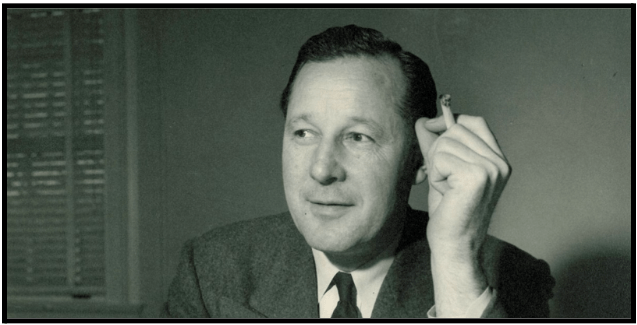One Idea. One Challenge. Once a Week.
“Shakespeare . . . what a wonderful thief he was.”
~ Mark Forsyth, The Elements of Eloquence
My buddy Tony was backstage at a big event waiting to speak.
Another presenter came over and said to him, “I’ve seen a bunch of your talks. I have to say, I really admire how funny you are. I’m jealous. I wish I could be more like that.”
Tony said, “Do you want to know my secret?”
“Absolutely!”
“The joke I’m going to use tonight I first heard 20 years ago. I didn’t write it. All I do is pay attention to what makes audiences laugh. And what makes me laugh. I save the best stuff I hear and then I use them in my talks.”
This tactic extends beyond jokes. For example, what’s the most celebrated speech in American history? Two stand out: Lincoln’s address at Gettysburg and King’s I Have a Dream sermon at the Lincoln Memorial.
The Oxford library in England has the Gettysburg Address cast in bronze as an illustration of what can be accomplished with the English language. Perhaps the most memorable line from this most memorable speech is:
“government of the people, by the people, for the people”
It’s super catchy. Even today many people recognize it. How did Lincoln come up with this phrase?
As it turns out, he didn’t.
Lincoln loved to read. His law partner gave him a book by the minister Ted Parker that includes a speech called The American Idea. Lincoln underlined this part:
“A democracy – that is a government of all the people, by all the people, for all the people”
So it was Ted Parker who came up with Lincoln’s immortal line.
Except he didn’t. Twenty years before Parker said it, Daniel Webster delivered his Second Reply to Hayne, now lauded as The Most Famous Senate Speech. He included this line: “the people’s government, made for the people, made by the people, and answerable to the people.”
Webster was a world-class orator, so it makes sense the line came from him.
Except, again, it didn’t.
Half a millennium earlier — in the 1300s! — the philosopher John Wycliffe translated the Holy Scriptures to Middle English and wrote in the preface: “this Bible is for the government of the people, by the people, and for the people.”
Wycliffe was a student of history. He knew that more than a thousand years before he was born, a general from the Peloponnesian War stood before the people of Athens and spoke about a ruler “of the people, by the people, and for the people.”
Where did the general discover the phrase? I don’t know, but I like to think it continues to travel back through time, sticking inside countless minds of the distant past.
How about King’s I Have a Dream speech?
It’s steeped in material from other places! His first words, “Five score years ago,” are a slight tweak to Lincoln’s opening at Gettysburg, “Four score and seven years ago.”
King says: “I have a dream that one day every valley shall be exalted, and every hill and mountain shall be made low, the rough places will be made straight . . .”
It’s one of several passages taken straight from the Bible. Here’s Isaiah 40:4-5: “Every valley shall be exalted, and every mountain and hill shall be made low, and the crooked shall be made straight, and the rough places plain . . .”
Even his most iconic phrase, “I have a dream,” was lifted verbatim from a speech by the civil rights activist Prathia Hall.
King ends by directly quoting an old spiritual: “Free at last! Free at last! Thank God Almighty, we are free at last!”
What about the greatest English writer of all time?
In 1607 Shakespeare published his famous play Antony and Cleopatra. The ancient biographer Plutarch wrote the seminal history of both Mark Antony and Cleopatra. It was translated from Greek to English by Thomas North in 1579.
Here’s the North translation of Plutarch:
she disdained to set forward otherwise but to take her barge in the river Cydnus, the poop whereof was of gold, the sails of purple, and the oars of silver, which kept stroke in rowing after the sound of the music of flutes
And here’s Shakespeare:
The barge she sat in like a burnished throne,
Burned on the water: the poop was beaten gold;
Purple the sails and so perfumed that
The winds were lovesick with them; the oars were silver,
Which to the tune of flutes kept stroke . . .
Mark Forsyth writes in The Elements of Eloquence: “The thing about this is that it’s definitely half stolen. There is no possible way Shakespeare didn’t have North open on his desk when he was writing.”
The science author Steven Johnson is an expert on innovation. He says in his speech Where good ideas come from that people think new ideas pop up all at once. But the truth is they slowly build and evolve over time. Most new ideas are simply old ideas that have been tweaked or combined:
We take ideas from other people, from people we’ve learned from, from people we run into in the coffee shop, and we stitch them together into new forms and we create something new.
The same is true for many of our best speeches and writings.
Here’s a brilliantly simple theme from the Institute for Justice (IJ) that encapsulates a complex lawsuit challenging the licensing of tour guides: They’re just storytellers.
Like Shakespeare, the IJ attorneys clearly drew inspiration from an earlier work – in this case, a previous IJ theme challenging the licensing of casket makers: It’s just a box.
Last week Maryrose and I ran a workshop at the Mercatus Center. We tailored it specifically to them. Yet most of our content was pulled from workshops we’ve done in the past – which were largely built from books and the insights of others. Even this article is stolen in part from previous pieces I’ve written.
A few years back I watched the researcher Adam Thierer capture the attention of an entire room of DC elites with his stories. I’ve seen him do this several times since, including at a dinner last week.
His secret: “I save all my best stories.”
Adam does research on lots of topics and makes a point to find powerful insights, analogies, and stories that bring to life the complex ideas he discusses. Of course, he doesn’t invent from scratch every single one of these anecdotes. Many he uncovers during his research – he spots them in the wild.
The authors Chip and Dan Heath encourage us to become experts in “the art of spotting.” To be on the lookout for catchy ideas, phrases, and stories. And when we find them, to capture and make them our own.
Good spotters, the Heath brothers say, will always have an advantage over even the most incredible creative geniuses. Because spotters can draw from all the best creators in history.
The wheel was invented six thousand years ago – and then copied, improved, and adapted ever since to fit various environments and terrains. So it is with most things.
We can always quote, paraphrase, or summarize to avoid plagiarism. We can ask for permission, as Dr. King did with the phrase I have a dream. We can tweak and polish until the words become our own. And unlike many giants from the past, we can be liberal in giving credit.
Whether we are building off of ourselves or others, we never truly start from scratch:
Consider that declarations of independence worldwide, from Costa Rica to Hungary to New Zealand, have entire sections drawn from the U.S. Declaration – which itself took many ideas and phrases from George Mason’s Virginia Declaration of Rights.
Mason’s words, incidentally, were “borrowed liberally” from the Enlightenment philosopher John Locke.
Who found them in Spinoza.
***
![]() IDEA
IDEA
Build off the best ideas and insights of others.
What’s a book, essay, speech, or poem that you love? Take a moment to skim it for a passage that resonates. Find a way to quote or incorporate it within the week into a conversation, email, or writing.
Quick examples:
- This summer I read a suggestion from Leo Tolstoy to read less. It was unexpected advice so I spoke about it with Maryrose. I came to agree with Tolstoy and started talking about it more. Then I wrote a piece called Make Time to Read Less.
- A couple years ago I got hooked on the poet Longfellow. I was writing an essay at the time and decided to conclude it with this verse from A Psalm of Life:
Lives of great men all remind us
We can make our lives sublime,
And, departing, leave behind us
Footprints on the sands of time.
***
For more like this:
If you find this useful, please subscribe to our free weekly newsletter.




